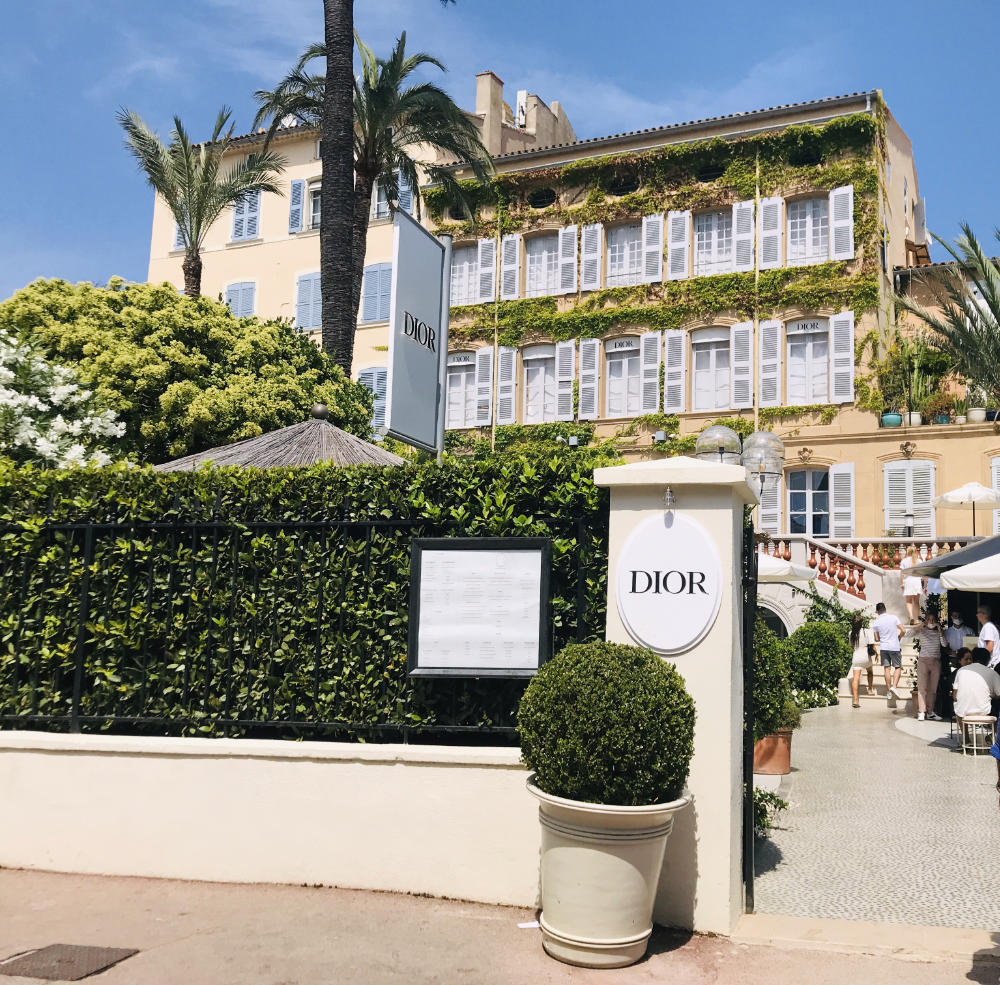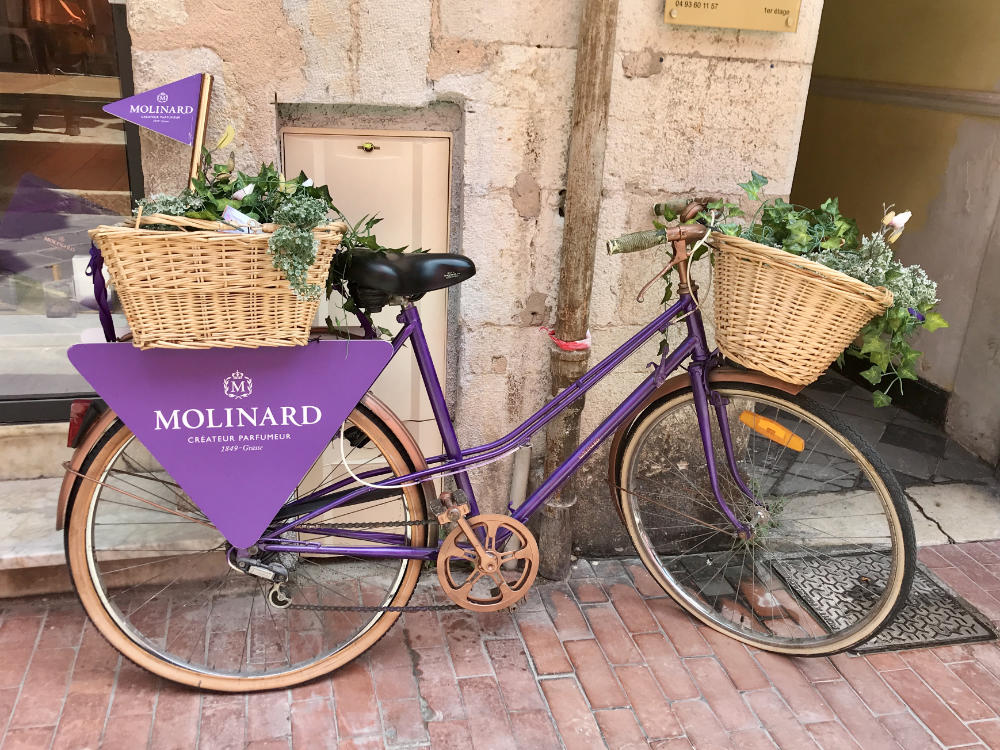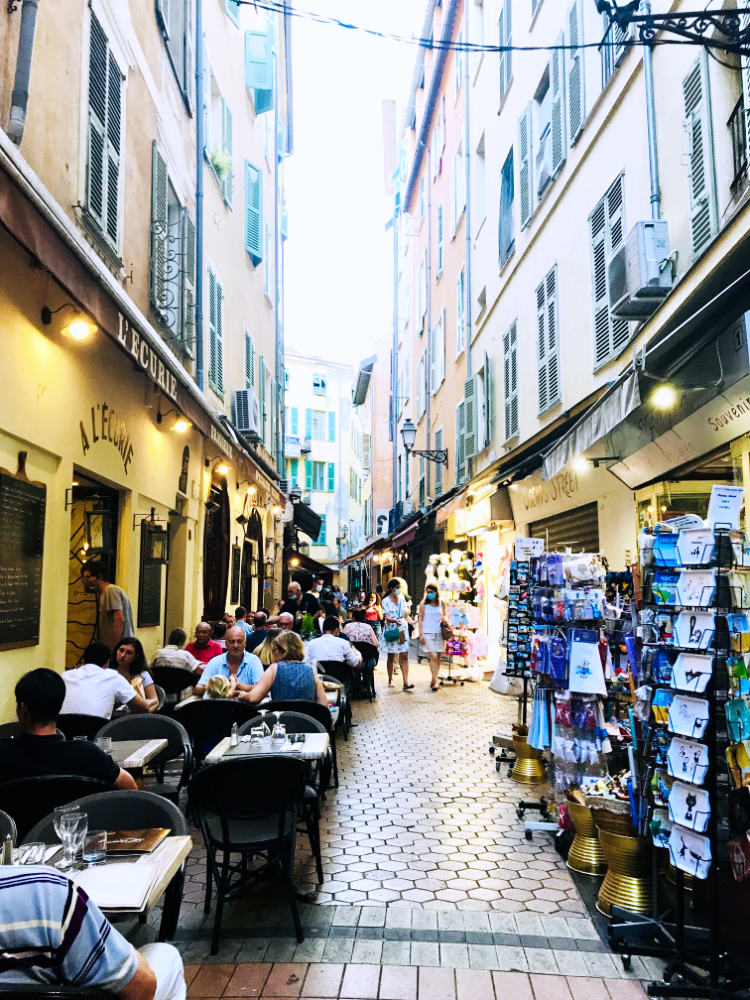Figuring out what is the cost of living in France is like figuring out how long is a piece of string. The answer is “it depends”.
The reality is that the cost of living in some of the major cities across France varies as widely as the cost of living in the U.S. varies from New York to Ohio. It depends on one’s income and resources, the area that you live in, and most of all, your own spending habits. So if you are planning a move to France, you will want to keep this in mind.
The city of Paris, for instance, is in the same league as London, Manhattan and Zurich. Which is to say, it is quite expensive. It is so much more expensive than the rest of France (around double), that the accountant in me had to analyze the cost of living in Paris separately here.
However Paris is not the whole of France, and we shouldn’t confound it with the rest. As a local living in Paris, with plenty of family members scattered over France, I can tell you that the lifestyle (and prices) that you can enjoy outside of Paris, makes one seriously think about moving.
But the only way to do a proper anaylsis is is to look at specific items. Each bucket of items is broken down into categories so that you can judge for yourself, whether you are a young student calculating the cost of living in Provence or a French family of 4 moving to Bordeaux.
I. Comparing costs across different French cities
If you are looking for a snapshot picture for the cost of living in France, here are approximately the costs you would be looking at. I’ve kept all the prices in Euros, to keep things consistent for currency fluctuations. The current average exchange rates (in 2024) are:
- €1 euro = $1.10 USD
- €1 euro = $1.45 CAD
- €1 euro = $0.85 GBP
a) Large Cities in France
In terms of costs across major cities, Paris is the most expensive, while Marseille is on the lower end, and so serves as a good comparative. Cities like Bordeaux, Toulouse, Nice, and Montpellier are somewhere in the middle.
As with most cities, prices are a good 20%-40% lower in suburbs outside of the major city centers. Paris in particular is only 2 million people inside the city center, while it has 12million people in the Région Parisienne.
Lyon and Annecy are gaining in terms of cost of living, due to their central location and quick access to the French Alps as well as the countryside. They are also relatively close to the French Riviera (around 3 hours by car).
Bordeaux near the west coast of France has recently increased in popularity (and property prices) after a direct fast TGV train line was established between it and the capital Paris.
b) Living in the Countryside
The center of France is substantially cheaper than living in one of the large cities, with the cost of accomodation much lower. Depending on the area, you can even get a house under €100k!
Regions like la Dordogne and Charente are quite in demand with British expatriates due to the proximity to the U.K., good weather, and relatively cheap housing.
c) Sample budget
So with that being said, I should note that the major factor in evaluating the cost of living is the cost of accommodation. I have used Marseille and Provence as a basis for my comparison, because it is a mid-range town (and I have family there so I know it well!)
Other than in Paris, you can get a reasonably sized 2 bedroom apartment for around €1500 in Marseille and other cities around France. Thus, for a sample budget, I have used €1500/month as a placeholder for accommodation, before discussing it more in detail below.)
Thus, for a couple with children, a sample budget for the cost of living in France would be around:
| COSTS FOR A COUPLE | Provence € |
|---|---|
| Accommodation Costs | |
| a) Rent | 1500 |
| b) Building charges | 100 |
| c) Electricity | 100 |
| d) Cable bills with 2 cellphones | 100 |
| Groceries costs | |
| a) Food and other essentials | 700 |
| b) Lunch at work | 200 |
| c) Wine | 100 |
| Clothing costs | 200 |
| Transportation costs | |
| b) Gas | 100 |
| c) Tolls on roads | 50 |
| Insurance | |
| a) Healthcare insurance | 60 |
| b) Home insurance & Civil responsibility | 25 |
| c) Car insurance | 35 |
| Children & Education Costs (after reductions) | |
| a) Nursery and daycare (1 child) | 500 |
| b) School (1 child) | 50 |
| Entertainment costs | |
| a) Dining in Restaurants (4-5 times a month) | 350 |
| b) Movie tickets, Museums, etc. | 100 |
| TOTAL PER MONTH | €4,270 |
Note: These figures have been provided for entertainment purposes only. All prices are approximate and are subject to each person’s personal situation. We are not responsible for any differences between actual costs and estimates.
This calculation doesn’t really give the whole picture though, because there are a lot of circumstances where particular discounts and reductions are usually available to locals. These have been integrated in the above calculations, but may not be available to everybody.

II. Accommodation Costs
a) Housing
There are two main types of rentals in France, furnished (meublé) and unfurnished. Unfurnished is usually around 5% cheaper than furnished.
Prices in other major French cities are approximately:
- Paris – €35/sq m
- Marseille – €15/sq m
- Lyon – €16/sq m
- Bordeaux – €16/sq m
You can see that rental costs in Paris are more than double what they would be in other large cities in France, and small towns will be even cheaper. So as in the sample budget example above, you would get approximately 100 sq meter 2-3 bedroom apartment in Marseille, which is approximately 1100 sq ft.
If you are looking to purchase an apartment instead of renting, prices in major French cities are approximately:
- Paris – €10-12k/sq m
- Marseille – €3k/sq m
- Lyon – €5k/sq m
- Bordeaux – €4.5k/sq m
However the smaller the place is, the higher the premium. In addition, notary fees and taxes of around 7-9% are added to the purchase price.
Again, Paris apartment prices are more than double the price in the other major cities in France. An apartment of 100sqm may cost around €350keur in Marseille, but will cost around €1.4meur in Paris.
All homeowners also pay an annual taxe fonciere , which is a type of property tax based on location and income (on average in the €1-3k range). In certain areas like Paris, if the home is a secondary residence, the taxe fonciere is increased by 60%.
There is also a taxe d’habitation on properties, which is paid only by high-income owners and secondary residences.
Renovations: While a lot depends on the finishes you choose, the general benchmark for renovation costs in the Paris area is around €1-2k per square meter. This is around 20% cheaper than costs for a house in the countryside.
b) Building charges
Both owners and renters of apartments will be required to pay building charges for the upkeep of the building, including if the building has elevators, parking spaces, and a gardien (concierge).
The biggest portion of the charge is due to a gardien, so buildings in Marseille, for example, don’t usually have those.
Some buildings will have centrally controlled radiators for heat, which are turned on by the building at the start of November. The price is usually included in the building charges, rather than in the electricity bill.
c) Electricity
Electricity depends on the size of your apartment as well as your consumption. For a mid-sized apartment it should be around €75 in the summer (most of France doesn’t have airconditioning) and €150 in the winter.
However, if you don’t have central heat radiators, you will have electric heaters, and the prices will significantly vary based on consumption.
There is also an option with your electricity company to only heat your hot water tank (chaudiére) at night at a slightly cheaper rate.
☞ READ MORE: Household items you will own if you live in Paris
d) Cable bills
For cellphone, internet, and cable, you can usually get a package deal for around €50-60, which will also include a landline. Each additional cellphone line is around €25 with a mid-range data package.
However, a basic set of channels by antenna is available all across France. An annual amount of €140 is collected through the income tax return (called the rédevance télé), which all residents have to pay, unless they can prove that they don’t have a TV.
Note, most landlines in France usually have free calling internationally to over 70 countries, including U.S., and Canada.

III. Groceries costs
a) Food and other essentials
Grocery costs are pretty equivalent to North America, with a range of cheaper grocery stores up to more expensive artisanal shops. There is not really a price difference between Paris and smaller towns in France, since all the large French grocery stores are online and offer delivery services.
The Whole Foods equivalent in France is the more expensive Monoprix, which can be found in every neighborhood and town. At the other end of the scale, the Aldi equivalent is the cheaper E. LeClerc and Leaderprice.
The main difference when grocery shopping is that there no such thing as extreme couponing, supersales, or buy-one-get-one type deals. Supermarkets are restricted as to the type of offers that they can propose, and deep discounting is illegal. It is hard to get a bargain in French grocery stores, the price you see is generally the price you pay.
Specialty shops: While the large grocery stores in France have decent stuff, French people love their artisan foods. If you want advice on the best piece of meat for that boeuf bourguignon, head over to a boucherie (butcher shop).
For special occasions or just if they happen to be gourmand (enjoy their food), buying meat at a boucherie, bread at a boulangerie, cheese at a fromagerie, etc. is very popular. Some of these specialty shops are more artisanal than others and prices can vary widely depending on how unique the products sold are.
Farmers Markets: Farmers’ market across the country are not particularly cheaper than grocery stores. The idea of terroir, food coming directly from the earth and being produced nearby is very much still prelevant in France.
The produce tends to be of better quality, and the idea of paying a fair wage means that prices are not cheaper than the mass market.
b) Lunch at work
French employers are required to provide employees with “access to a decent meal in good conditions”. In practice, this means that most large employers have negotiated with their unions to provide a highly subsidized canteen on the premises.
A full meal with entrée–plat–dessert at a work canteen should cost around €5-6. If the employer is too small to have a canteen, it can instead purchase “ticket restos” which are meal certificates to give to employees.
Fifty percent of the cost is picked up by the employer and the rest by the employee. These can be used in restaurants and grocery stores to purchase meals, as the employee wishes.

c) Wine
One item that is a lot cheaper in France is the wine. I know, you may hate wine, but we are in France after all, so I had to include it in the budget! With France being a major international wine producer, some (not-great) French wines start as low as €2.50.
And you can actually get a decent bottle for as little as €5. You can, of course, get more expensive bottles (sky is limit!). But if you just want a simple bottle for an apéro, a trip to the local french grocery store will see you walk out with wine, cheese, a baguette, and a pack of charcuterie for less than €10.

IV. Clothing costs
Clothing costs vary widely from ready-to-wear fashion to high-end luxury brands, so it really depends on your own tastes. That being said, retailers in France are not allowed to deep discount.
Sales periods (les soldes) are allowed only twice a year, and you will not find the door-crasher deals that you find in the U.S. Items tend to be more expensive that what you are used to in the U.S. or the U.K.

V. Transportation costs
a) Gas
If you are American, you will be shocked at the cost of gasoline in France. The current price in France is around 1.6/litre which is around €6/gallon in Euros or $7.10/gallon in USD. That is approximately 3 times the price that Americans pay.
Most of the difference is due to taxes in France, which charges high gasoline taxes. While French companies like Total are involved in gasoline production, most of the supply is imported in.
b) Tolls on roads
If you drive around France, you will also come across a lot of toll roads. The roads were sold off of private entities years ago, and price inflation has been swift.
There are also a lot of smaller tunnels and bridges that have tolls that you wouldn’t expect. I once missed an exit just outside Paris and ended up on a toll road that cost €8 to get off at the next exit, and another €8 to come back.
As an example, a 7-hour trip from Paris to Marseille by car can easily cost over €80 in tolls each way, so when you factor in the cost of gas, you are easily looking at a €300 road trip for a roundtrip.
c) Airline tickets
Budget airlines are the norm in Europe, and even mainstream airlines like Air France have their own budget brands. Flights can be quite cheap, with add-ons like luggage, etc. tacked on.
For example, you can get a flight from Paris to London for around €100-150. However, if you are not located near an international airport, by the time you add in the cost of transportation, parking, etc. the bills will start to add up.
d) Train tickets
Convenience aside, it is usually more expensive to take the SNCF trains than it is to fly. The same trip from Paris to London on the Eurostar high-speed train would be closer to €200-350. Paris to Marseille would be around €150-250 for a round trip.
However, the TGV high speed train connection is usually from centre-ville to centre-ville, meaning that you can avoid the additional costs of travelling to an airport.
VI. Insurance
a) Healthcare insurance
Healthcare is free in France for tax-paying citizens and residents, so that is a cost that we don’t usually take into account. However, the costs are usually paid in advance by the patient and then reimbursed by Sécurité Sociale.
Prices for a normal general practitioner visit are around €35, while a more specialized doctor like a gynocologist will be around €80-100.
Even if you had to pay out of pocket, the prices of medications, going to the emergency room, or giving birth in a hospital, are just pennies on the dollar.
Most people do have additional health insurance (called Mutuelle) through either their employer or private insurance to cover any overages such as glasses, dental, and prescriptions that are not covered by the government. For a family of 4, it is around €120, half of which is usually covered by the employer.
b) Home insurance and Civil Responsibility
Both renters and owners are required to get Assurance Habitation avec Responsabilité Civile to cover the family. The assurance habitation (home insurance) covers the home and contents.
Responsibilité Civile is more interesting because it covers actions outside the home as well. It covers the material or bodily damage to a third party, whether through negligence, carelessness, his children, animals or things for which he is responsible.
It does not cover intentional acts. Budget around €400/year for home and civil responsibility insurance.
c) Car insurance
Unless you live in Paris, you may want to have a car. Driving in France is not that complicated, but there are a few driving laws to be aware of. Car insurance for a small car is around €400-500/year.

VII. Children and Education Costs
a) Nursery and daycare
State subsidized daycare (créche) is the holy grail for most new parents in France, because of its high standards and affordable cost. The price is based on an income scale (by town), with the maximum being around €2.50/ hour. On average for a 40hour week, the monthly cost is around €800 euros for high-income earners. At the low end, the price can be as low as €50/ month.
If you do not get a spot in créche and have to get an assistant maternelle instead, a government agency called CAF covers a good portion of the costs, bringing the price down to the equivalent of créches.
A lot of larger companies also have Employee Committees (Comité d’Entreprises) which will cover a portion of the costs.
b) School
Maternelle (from 3 years old) to high school is free in France, although additional programs like early drop-off, late pick-up, and school canteens cost extra. Prices are based on income and town you live in. As an example, for school canteens in Paris, the amounts in question can be as low €0.15 per day, which works out to €4/month.
In addition, all childcare expenses (including créche and after-school activities) provides income tax credits on your annual tax return. The French government agency CAF also pays each family a stipend per month, depending on the number of children, the family’s resources, and special factors such as if it is a single parent, etc.
c) University
Public universities are free in France and every French student is guaranteed a spot somewhere. More interestingly, some schools like the National School of Public Administration ENA, actually pay the students a stipend of around €1700/ month to attend! Competition is steep to get into schools like ENA, and students are expected to work for the government for 10 years after graduating, or they pay those funds back.
There is another class of universities in France however, called the Grandes Ecoles that are more prestigious, but also more expensive. These French “Ivy League” universities can easily cost anywhere from €8k-15k a year.
On the other hand, students in France receive a subsidy for housing and other costs of living from the government agency CAF, which depends on the parents’ income and school location (The Parisian student’s cost of living is assumed to be higher than other regions).
☞ READ MORE: The French Education System Demystified

VIII. Entertainment costs
a) Dining in Restaurants
In France, you don’t really have the super-cheap $2 for a pizza slice deals that you see in North America. For one, most French people don’t snack, so there is no reason to offer deals like that. As well, the cost of adhering to French food rules and regulations means that it would not be profitable.
Restaurants across France can vary significantly from the tiny brasserie on a quiet street to 3-star Michelin restaurants in the fanciest part of town. Prices already include all taxes, and tips to the server are not required.
For a Frenchman in North America, he will be surprised to see taxes and tips added to the bill, while the American in France will be amazed by how “cheap” it seems compared to what he was expecting.
Most French people usually leave only leave a couple of euros, because the waiter is expected to earn a full salary through his employer.
b) Movie tickets, Museums, and Theme Parks
There is the full price that tourists pay, and then there is the price that locals usually pay. Most French people have access to large discounts on things like movie tickets and sightseeing attractions through their work, as part of their union-negotiated perks.
Big theme parks like Disneyland Paris, Parc Asterix, and Jardin d’Acclimatation offer discounts to firms for their employees, as well as special offers depending on the time of the year. (Usually, the larger the firm, the better their Comité d’Entreprise benefits will be.)
Museums also offer EU citizens under 25 free access, as well as reduced prices for the unemployed, handicapped, and other special classes. There is also free access to most museums on the 1st Sunday of every month.

IX. Sales Taxes in France
I wasn’t sure if I wanted to include taxes here since that usually relates to income, but then I realized that I had to mention sales taxes, or Value-added Tax (TVA or Taxe sur la valeur ajoutée in French).
TVA is a flat sales tax that is included in all the items I have noted above, at either a 0% rate for basic essentials up to 20% for everything else. The sales price already includes this, so you don’t need to account for this separately. Nevertheless, a 20% tax on goods and services is a lot.

So there you have it, the deep dive into the cost of living in Paris and across France! Is there any category that I missed? If you enjoyed this article, you may want to read more about the reality of living in Paris. (Hint: It is not what you think!) A bientôt!





